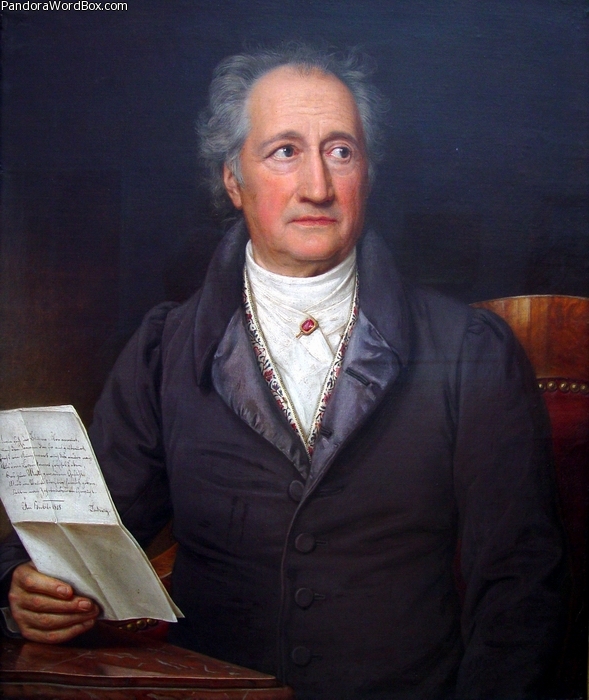Our websites offer information mostly for educational purposes with no intent to alter health care protocols nor to serve as a sole source of medical information.
Always seek the advice of your local health care provider.
|
× UKRAINIAN CHILDREN WITH DISABILITIES HAVE SPECIAL NEEDS |
ww

"Bildnis Johann Wolfgang von Goethe", 1828 Joseph Karl Stieler (1781- 1858) Neue Pinakothek, Munich, Bavaria, Germany
Goethe (1749-1832) inspired many and to such an extent as to became the National Poet of the German People and to belong to the World Pantheon of Geniuses. His immortal contribution to the world literature is the epic "Dr. Faust" - each reader is left to resolve the dilemma of the worth of a soul of a criminal hedonist sinner. As a precocious youth, Goethe wanted to become "an independent Genius", and he did - he became a polymath - an authority in theology, literature, drama, humanism, and science. His emphasis on plant morphology and existence in general framed the questions that Darwin and Wallace sought to answer. Some scholars note that Goethe's sense of humanism led him to realize the danger of exaggerated "idealisms" emerging from philosophers like Schopenhauer, Nietzsche, later expanded by Hegel, and Marx - Goethe felt that "philosophy" could poison the German people, a vision realized when "ideologies" and "superman" that did away with pity for the "weak" and became "rationalized" as "eugenic" and "cleansing" or holocaust policies by J. Stalin, A. Hitler, and others like them. Goethe stands for the denial of the superiority of reason as the sole interpretation of reality - he felt that knowledge is not solely reason but also aesthetic (the most ancient Greek sense of "ethic" is "aidos" or knowledge of what is inherently repugnant to the human soul).
20201207 ww
|








